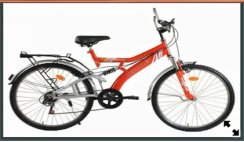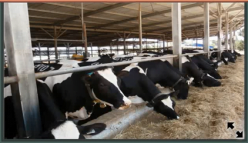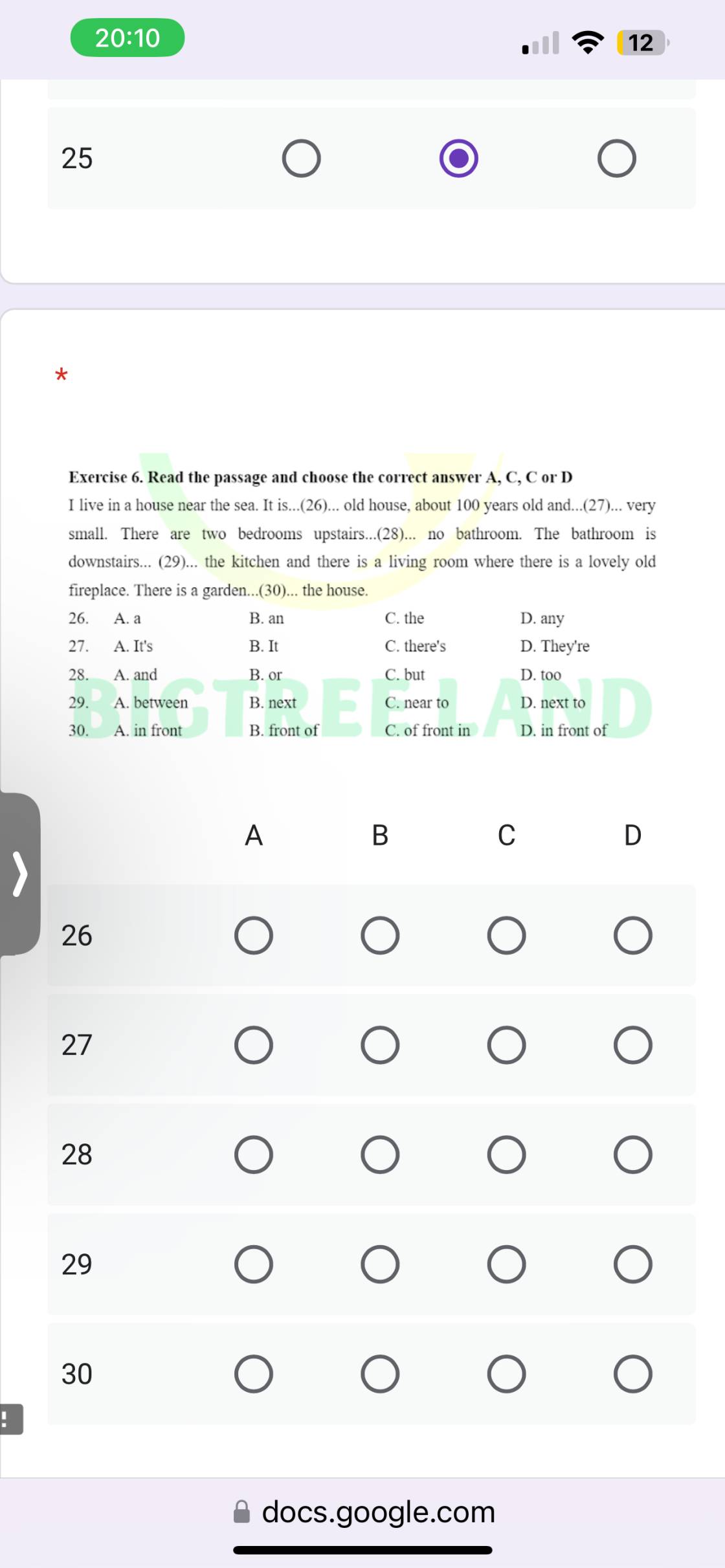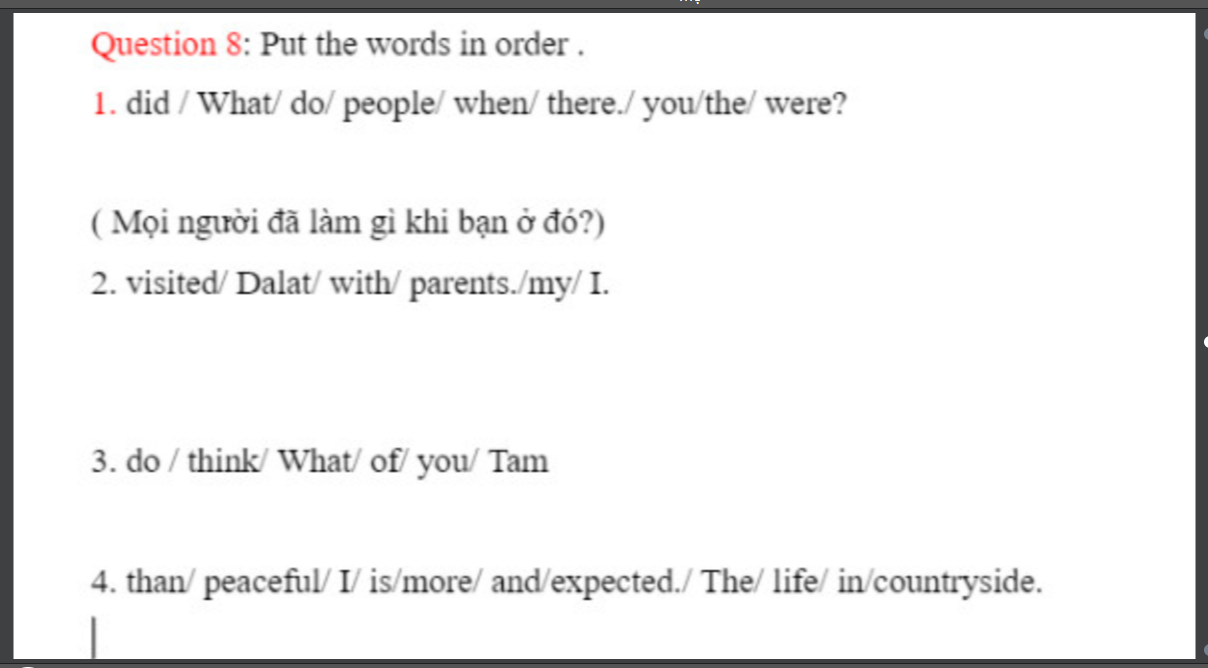
Hãy nhập câu hỏi của bạn vào đây, nếu là tài khoản VIP, bạn sẽ được ưu tiên trả lời.


1. went
2. Bought
3. had
4. ate
5. won
6. saw
7. sang
8. wrote
9. built
10. met
Chúc bạn học tốt!

Refer:
Once a poor fanner had a daughter named Little Pea. After his wife died, the farmer married again. His new wife had a daughter. Stout Nut. Unfortunately, the new wife was very cruel to Little Pea. Little Pea had to do chores all day. This made Little Pea’s father very upset. He soon died of a broken heart.
Summer came and went. In the fall, the village held its harvest festival. That year, everyone was excited as the prince wanted to choose his wife from the village. Stout Nut’s mother made new clothes for her, but poor Little Pea had none.
However, before the festival started, a fairy appeared and magically changed Little Pea’s rags into beautiful clothes.
As Little Pea ran to the festival, she dropped one of her shoes and lost it.
When the prince found the shoe, he decided to marry the gữl who owned
it. Of course the shoe fitted Little Pea. and the prince immediately fell in love with her.
Tham khảo!
The Horse, Hunter and Stag (Ngựa, Thợ săn và Hươu)
A quarrel had arisen between the Horse and the Stag, so the Horse came to a hunter to ask his help to take revenge on the Stag.
The Hunter agreed, but said: “If you desire to conquer the Stag, you must permit me to place this piece of iron between your jaws, so that I may guide you with these reins, and allow this saddle to be placed upon your back so that I may keep steady upon you as we follow after the enemy.”
The Horse agreed to the conditions, and the Hunter soon saddled and bridled him.
Then with the aid of the Hunter the Horse soon overcame the Stag, and said to the Hunter: “Now, get off, and remove those things from my mouth and back.”
“Not so fast, friend,” said the Hunter. “I have now got you under bit and spur, and prefer to keep you as you are at present.”
If you allow men to use you for your own purposes, they will use you for theirs.
Bài dịch tiếng Việt
Một cuộc xung đột nảy lửa xảy ra giữa Ngựa và hươu, sau đó Ngựa đến gặp một gã thợ để nhờ gã bày cách trả thù hươu.
Gã nhận lời nhưng kèm theo điều kiện “Nếu mi mong muốn thắng Hươu như vậy, mi phải cho ta gắn miếng sắt này vào quai hàm của mi để ta có thể dùng dây cương điều khiển mi, bên cạnh đó phải có một cái yên trên lưng mi để ta có một chỗ ngồi vững khi chúng chúng ta săn đuổi kẻ thù”.
Ngựa đồng ý các điều kiện đó, thế là gã thợ săn nhanh chóng gắn yên và dây cương cho nó.
Sau đó nhờ những công cụ săn của gã mà ngựa đánh bại hươu một cách chóng vánh, Ngựa liền nói với gã “Nào giờ thì nhảy xuống và gỡ những thứ trên miệng và lưng của tôi ra đi nào”
“Đừng vội anh bạn”, gã nói ” bây giờ ta hơi mệt rồi và ta thích giữ nguyên hiện trạng này của ngươi hơn”.
Nếu bạn lợi dụng ai đó cho mục đích của bạn, họ sẽ lợi dụng bạn cho mục đích của họ.

Cảm ơn em đã tin tưởng và lựa chọn đồng hành cùng olm.
Olm là môi trường an toàn, lành mạnh, thân thiện, tích cực là nơi để chia sẻ kiến thức và lan tỏa yêu thương, tương trợ, giúp đỡ tới tất cả mọi người, nên em sẽ nhận được những điều đó từ cộng đồng tri thức olm em nhé

1) Find: /faɪnd/
+ Nghĩa: Khám phá điều mà ta muốn hoặc ta bị mất sau khi đã tìm kiếm nó. Với ý nghĩa này, ta có thể hiểu nôm na find có nghĩa là “tìm thấy”.
+ Sự khác biệt: Có thể xem find là từ mà hầu hết chúng ta nghĩ đến hoặc dùng khi cần nghĩa “tìm”. Tuy nhiên, để dùng đúng từ này và phân biệt với nghĩa “tìm kiếm”, ta cần thận trọng vì find có thể hiểu là giai đoạn sau khi “tìm kiếm”
+ Ví dụ:
In order to win this competition, you must find a code hidden in that room. (Để chiến thắng cuộc thi này, bạn phải tìm thấy một mã số được ẩn giấu trong căn phòng đó).
Usually, I find him working at 7 a.m but he started working early than usual. (Bình thường, tôi thấy anh ta làm việc lúc 7 giờ sáng nhưng hôm nay, anh ấy bắt đầu sớm hơn thường lệ).
2/ Look for: /lʊk fə/
+ Nghĩa: Cố gắng để tìm thấy điều gì đó. Với ý nghĩa này, ta có thể hiểu look for có nghĩa là “tìm kiếm”,
+ Sự khác biệt: Ngay trong nghĩa của look for đã thể hiện sự khác biệt của nó với find. Trong khi find là “tìm thấy” – giai đoạn sau “tìm kiếm” thì look for chính là “tìm kiếm” để đi đến kết quả cho mình. Khi dùng look for, người nói muốn nhấn mạnh họ vẫn đang trong quá trình tìm kiếm.
+ Ví dụ:
John has looked for his dog since yesterday, he has found it yet. (John đã tìm con chó của anh ta từ hôm qua nhưng anh ta vẫn chưa tìm thấy nó).
Please keep you looking for the best solution for this problem, don’t annoy me anymore! (Vui lòng tiếp tục tìm kiếm giải pháp tốt nhất cho vấn đề này, đừng làm phiền tôi nữa!).
1) Find:
+ Nghĩa: Khám phá điều mà ta muốn hoặc ta bị mất sau khi đã tìm kiếm nó. Với ý nghĩa này, ta có thể hiểu nôm na find có nghĩa là “tìm thấy”.
+ Sự khác biệt: Có thể xem find là từ mà hầu hết chúng ta nghĩ đến hoặc dùng khi cần nghĩa “tìm”. Tuy nhiên, để dùng đúng từ này và phân biệt với nghĩa “tìm kiếm”, ta cần thận trọng vì find có thể hiểu là giai đoạn sau khi “tìm kiếm”
+ Ví dụ:
In order to win this competition, you must find a code hidden in that room. (Để chiến thắng cuộc thi này, bạn phải tìm thấy một mã số được ẩn giấu trong căn phòng đó).
Usually, I find him working at 7 a.m but he started working early than usual. (Bình thường, tôi thấy anh ta làm việc lúc 7 giờ sáng nhưng hôm nay, anh ấy bắt đầu sớm hơn thường lệ).
2/ Look for:
+ Nghĩa: Cố gắng để tìm thấy điều gì đó. Với ý nghĩa này, ta có thể hiểu look for có nghĩa là “tìm kiếm”,
+ Sự khác biệt: Ngay trong nghĩa của look for đã thể hiện sự khác biệt của nó với find. Trong khi find là “tìm thấy” – giai đoạn sau “tìm kiếm” thì look for chính là “tìm kiếm” để đi đến kết quả cho mình. Khi dùng look for, người nói muốn nhấn mạnh họ vẫn đang trong quá trình tìm kiếm.
+ Ví dụ :
John has looked for his dog since yesterday, he has found it yet. (John đã tìm con chó của anh ta từ hôm qua nhưng anh ta vẫn chưa tìm thấy nó).
Please keep you looking for the best solution for this problem, don’t annoy me anymore! (Vui lòng tiếp tục tìm kiếm giải pháp tốt nhất cho vấn đề này, đừng làm phiền tôi nữa!).

1. What did the people do when you were there
2. I visited Dalat with my parents.
3. What do you think of Tam?
4. The life in countryside is peaceful and more than I expected
1.What did the people do when you were there?
2.I visited Da Lat with my parents.
3.What do you think of Tam?
4.The life in the countryside is more peaceful than I expected.

ĐỀ LUYỆN THI IOE LỚP 5
1. house / is / the city. / in / My
...............................................................................
2. Peter / go / on foot? / Does / to work
................................................................................
3. _ESULT
4. My mother gave me a _ _ _ _ _ _ _ yesterday.

5. We have English on Tuesday and Saturday. We have it ... a week.
A. once B. twice
C. two times D. three times
6. Go straight and Mai's house is ... your right.
A. at B. in
C. beside D. on
7. a shower / You should / take / twice / a week.
....................................................................................
8. an / orange. / is / That
..................................................
9. My father sometimes plays _ _ _ _ _ _ with his friends.

10. Remember to drink water everyday. It's good _ _ _ our health.
11. Choose the odd one:
A. sing B. play
C. draw D. yesterday
12. Make ... circles.
A. four B. a
C. for D. one
13. is / chicken. / favorite / My / food
.................................................................................
14. frogs / some / garden. / There are / in the
..................................................................................
15. I want to be a musician in _ _ _ future.
16. All of my friends watching cartoons _ _ TV.
17. She s going ... in the fall.
A. fish B. fishing
C. fishes D. to fish
18. Where is my cup of tea? – It's ... the kitchen.
A. in front of B. under
C. behind D. in
19. interesting / doing / We are / things. / many
...............................................................................
20. to school / I / usually / go / by bike.
................................................................................
21. Happy birthday to y_ _!
22. What subject are you good _ _ , Elisa?
23. I have ... on Monday. I the subject very much.
A. biology B. novel
C. education D. science
24. Choose the word that has the underlined part pronounced differently:
A. hour B. house
C. hen D. hot
25. to learn / many interesting things / I / about animals. / love
......................................................................................
26. usually / play / Trinh and Thang / table tennis / together.
.........................................................................................
27. We are having _ break now.
28. There are many cows in the _ _ _ _ _ _ _ of my family.

29. Hoa was very surprised when she looked at ... in the mirror.
A. she B. hers
C. herself D. her
30. Choose the word that has the underlined part pronounced differently from the others:
A. season B. weather
C. week D. beach
31. activities in / a lot of / interesting / There are / the festival.
.....................................................................................
32. has / and / a son. / a daughter / Mrs Hanh
.......................................................................................
33. Don't forget to post the letter _ _ _ me.
34. After dinner, my mother checks my homework b_ _ _ _ _ bedtime.
35. I ... born on November 17th.
A. was B. were
C. am D. is

Aren't = are not. Used when the subject is multiple items/plural. "They aren't nice people."
Isn't = is not. Used when the subject is one item/singular. "He isn't a nice person."
Don't = do not. Multiple items/plural. "They don't come here often."
Doesn't = does not. One item/singular. "He doesn't come here often."
"Don't" is also used to command someone or some people to not perform an action.


26 B
27 A
28 C
29 D
30 D